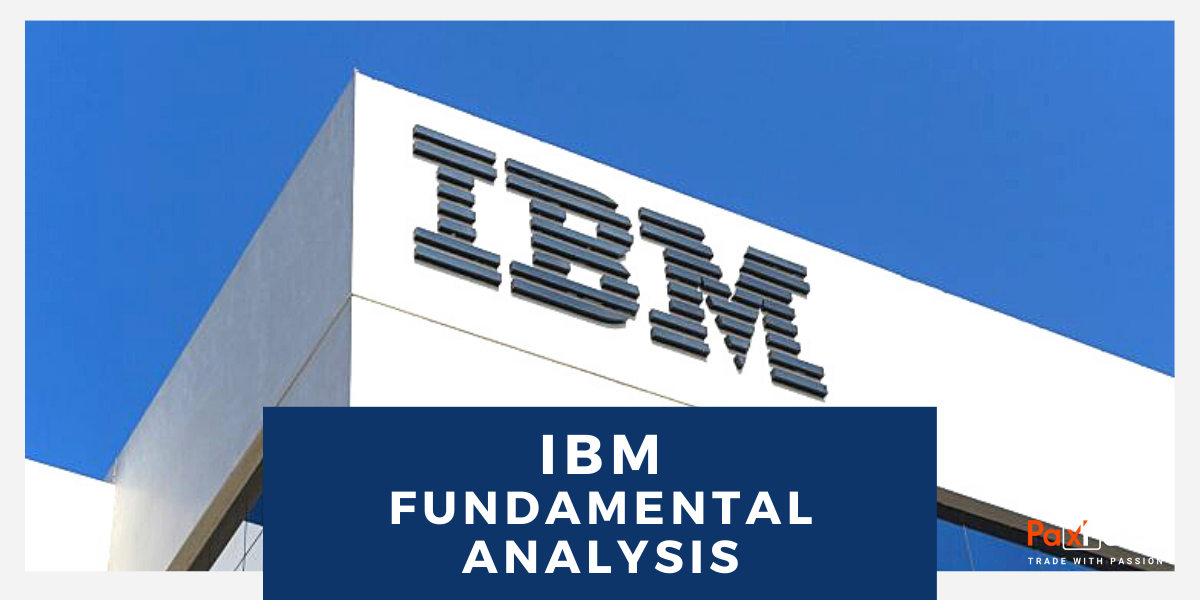
Source: PaxForex Premium Analytics Portal, Fundamental Insight
In 2016, International Business Machines (IBM) embarked on a multi-billion-dollar venture into the realm of data and the Internet of Things through the acquisition of The Weather Company's business-to-business, mobile, and web assets. Although the exact financial details were never disclosed by IBM, industry experts approximated the deal's value to exceed $2 billion.
The driving force behind this acquisition was the pivotal role of data. The Weather Company's repository of data, sourced from both public outlets and a network of nearly 150,000 compact weather stations, was leveraged by the company's corporate clientele in diverse ways. Major airlines utilized this data to mitigate the effects of turbulence, while insurance companies adopted it as a tool for evaluating risks.
Subsequent to this acquisition, IBM's strategic trajectory underwent a transformation. The company refocused its efforts on two key domains: Hybrid cloud computing and artificial intelligence. Operating through its software, hardware, and consultancy divisions, IBM now empowers corporate patrons to enhance efficiency and curtail expenses via its extensive array of cloud and AI solutions.
On Tuesday, IBM made an announcement regarding its decision to offload the assets of The Weather Company to Francisco Partners. The specific terms and conditions of the agreement were not publicly disclosed, a silence that strongly implies that IBM is poised to incur a significant financial setback. Earlier in April, The Wall Street Journal unveiled that IBM was actively exploring the possibility of a sale, with estimated proceeds of around $1 billion—approximately half of the reported initial acquisition cost.
While the acquisition held a degree of logic for IBM in 2016, encompassing elements like consumer-centric applications and websites, it diverged from IBM's core identity as a non-consumer-focused entity. Despite these digital assets drawing in a notable 415 million monthly visits, their alignment with IBM's broader business scope remained tenuous. It's likely that these high-traffic assets contributed little tangible value to IBM's overarching operations.
IBM's decision to divest from the weather-focused business can be attributed to its steadfast commitment to its hybrid cloud and artificial intelligence (AI) strategy. The company has channeled substantial investments into these domains, exemplified by the momentous $34 billion acquisition of Red Hat in 2019. Under the ownership of Francisco Partners as an independent entity, The Weather Company is poised to receive the necessary resources and attention to transcend its conventional forecasting role. This move aims to introduce novel functionalities that cater to both end-users and enterprises, aligning more suitably with the evolving landscape of hybrid cloud and AI technologies.
While evaluating the acquisition of The Weather Company, it's challenging to perceive it as anything but a misstep; however, IBM seems to be pivoting positively after nearly a decade of transformation. Despite navigating a challenging economic landscape, the company is displaying revenue growth and an expansion in its generation of free cash flow. Projections indicate an anticipated 3% to 5% growth in revenue for the current year when adjusted for currency effects. Additionally, a substantial increase of $1 billion in free cash flow is expected, totaling $10.5 billion.
IBM is experiencing a deceleration in demand for discretionary projects, yet the appetite for more extensive, transformative initiatives remains robust. Given the prevailing economic uncertainty, enterprise clients are inclined towards projects capable of delivering noteworthy returns on their investments. This is precisely the capability offered by IBM's hybrid cloud platform, bolstered by the expertise of the company's consulting division, which serves to guide clients toward optimal solutions.
With the divestiture of The Weather Company, IBM is extricating itself from yet another business line that never truly synergized with its century-old tech giant status. In early 2022, the majority of its Watson Health business was sold—a conglomerate of high-priced acquisitions that ultimately fell short in performance. Curiously, Francisco Partners also acted as the acquirer in that transaction.
As IBM systematically sheds non-essential ventures that no longer align with its hybrid cloud and AI strategy, the company is liberating resources to pursue its most promising avenues for growth. A more honed, less sprawling incarnation of IBM stands a significantly higher chance of achieving success.
As long as the price is above 139.00, follow the recommendations below:
- Time frame: D1
- Recommendation: long position
- Entry point: 143.30
- Take Profit 1: 146.00
- Take Profit 2: 152.00
Alternative scenario:
If the level of 139.00 is broken-down, follow the recommendations below:
- Time frame: D1
- Recommendation: short position
- Entry point: 139.00
- Take Profit 1: 136.00
- Take Profit 2: 132.00













